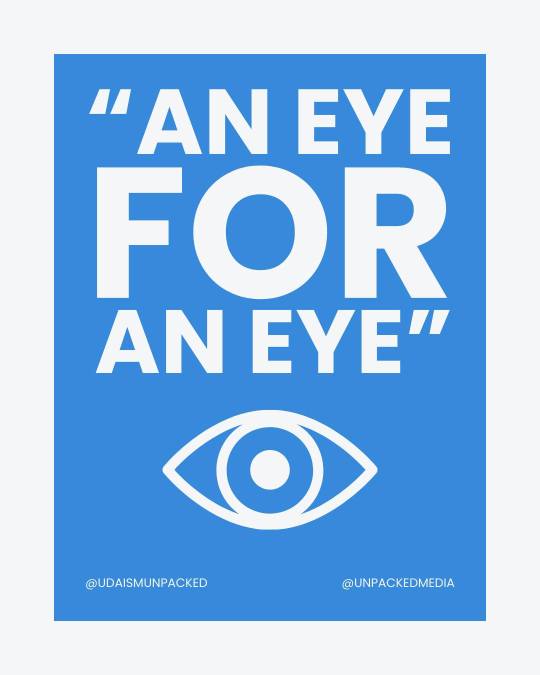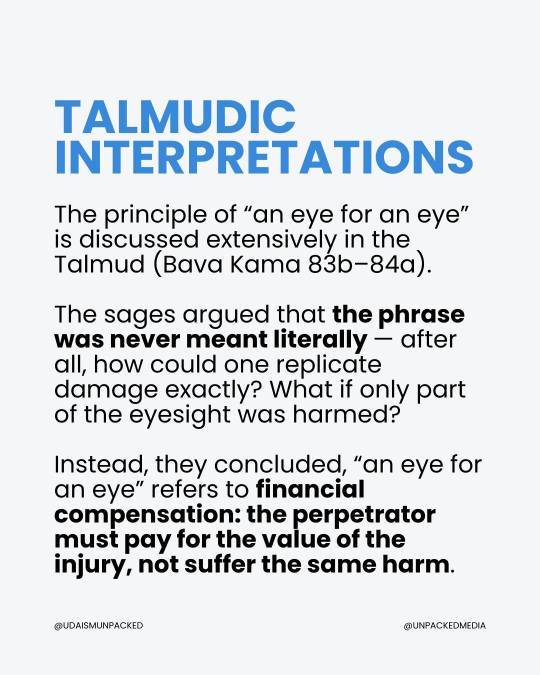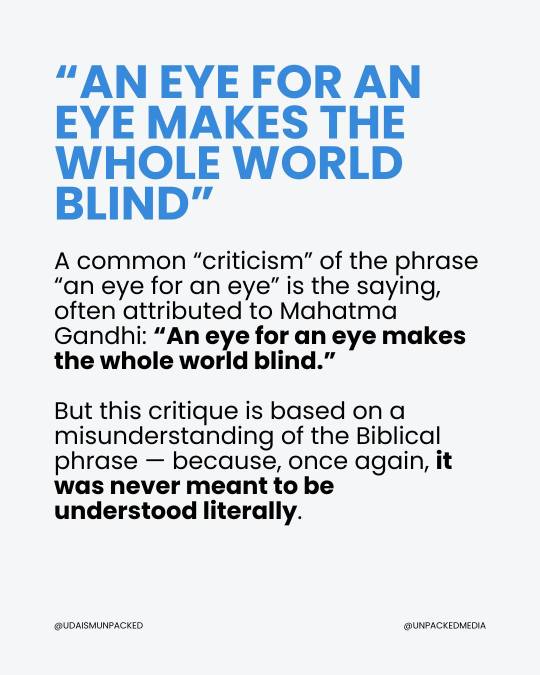#Talmudical
Explore tagged Tumblr posts
Text
If you’re not Jewish, you can kindly shut the fuck up about the following:
The Talmud
Zionism
What is or is not antisemitism
The word “goy/goyim”
Jumblr: Feel free to add more.
2K notes
·
View notes
Text
Makkot 16b:11 — Holding your pee is bad for your bladder and more importantly, prohibited

841 notes
·
View notes
Text
"There was a case where a certain man set his eyes on a certain woman and his heart became [so] consumed with burning desire [that his life was endangered]. When doctors were consulted, they said, "His only cure is that she submit to him." The sages responded, "Let him die rather than have her yield." "Then let her stand naked before him," [the doctors said]. "Let him die rather than that she stand naked before him." "Then let her at least talk to him from behind a fence." "Let him die rather than that she talk to him from behind a fence."
- Babylonian Talmud, Sanhedrin 75a
"This passage, one of the most misunderstood in the Talmud, has led more than a few people to conclude that the sages were so puritanical that they deemed it preferable that an unmarried man die rather than converse with an unmarried woman.
However, this narrative has little to do with illicit sexual behavior; it really concerns emotional blackmail. Imagine the societal damage that would ensure if whenever one person's will was thwarted by another, the rejected party said he [or she] would die if the other party did not grant whatever he or she wished. Ultimately, the fact that this man is obsessed with this woman is his problem, and his alone (the Talmud provides no indication that the woman had led him on); thus, he is not entitled to make demands of her. As Hyam Maccoby insightfully notes: "What the story is really telling us is that no woman is required to sacrifice her status or dignity for the sake of a madman."
What makes this case so unusual is the doctors' claim that the man's life is at stake. Normally, when such a diagnosis is made, Jewish law permits a whole range of otherwise forbidden activities. For example, if the doctors had said the man must eat unkosher food lest he die, the Rabbis would have permitted it. But Jewish law never permits imposing unreasonable demands on others, even when a life is at stake. Thus, if the same man should insist that his cure is conditional on other people's eating unkosher food, this would not be permitted. Standards of behavior in Jewish life cannot be determined by the insane or the intransigent."
-Jewish Wisdom, Rabbi Joseph Telushkin, pages 133-134
#joseph telushkin#jewish wisdom#jewish thought#jewish teachings#no idea how to tag this#talmud#gemara#judaism#jumblr
3K notes
·
View notes
Text

#jumblr#memes#tanakh#Talmud#mishnah#Midrash#Shulchan Aruch#Responsa#Moreh HaNevukhim#Jews#Judaism#Jewblr#frumblr
856 notes
·
View notes
Text
I’m sure someone has written it by now but on the off chance they haven’t…I need a fic where Jason never learned how to swim and it never came up when he took on the Robin mantle (maybe he lied, by omission, or maybe it truly never came up in conversation) until a patrol gone wrong where he gets thrown into Gotham Habor and almost drowns. Bruce has to teach him how to swim while dealing with his own guilt over never fully verifying if Jay could swim, because he grew up rich and had lessons in the pool out back and never fully put together — until that awful moment, seeing Jason’s head disappear underwater — that swimming isn’t often an instinct, but something that absolutely has to be learned. and practiced. and they both have to untangle their prides and guilt and do something as simple as jump in the pool together and swim.
#thoughts#idk just thinking about how the Talmud commands Jewish parents to teach their kids to swim#because it will save their lives#Fic ideas#bruce wayne#batman#dc#Jason todd#batfamily#Robin#bats and birds#dick could swim because his parents taught him#Jason grew up in Gotham right near the water#but never learned#Bruce learned and then traveled around the world where even the poorest families taught their kids to swim#and was blind to Jason’s situation because of that and or his own privilege
937 notes
·
View notes
Text
Talmudic insult of the day “vinegar, son of wine” (said to someone who has a cool dad)
#Talmud#jumblr#RIP rabbi Eliezer you shouldn’t have been a fucking snitch#how do you live up to a dad that had laser eyes though that’s tough
2K notes
·
View notes
Text
Do you think it’s disrespectful to say that rabbi yochanan and Reish Lakish are kind of tumblr coded?
457 notes
·
View notes
Text
so about rashi
there are three things worth noting about rashi:
it's thought his daughters were fairly educated to the point that there's an urban legend about someone saying the reason it's ok to wear tefillin is that rashi's daughters wore tefillin
at the time of course it was not socially acceptable for women to put their names on things
rashi got an INSANE (like, physically impossible, someone's done the calculations) amount done
so we have a guy who does a ridiculous amount and his daughters who were allegedly very smart but couldn't have published at the time.
conclusion: maybe rashi's stuff was actually a joint rashi + daughters project he couldn't put their names on?
#jumblr#jewblr#jewish#judaism#jewish tumblr#rashi#gemara#talmud#jews#history#jewish history#it feels so weird tagging it as this on shabbos#but ok#frumblr
429 notes
·
View notes
Text

There's a clear effort by malicious actors to paint Judaism and its teachings as something evil or bigoted in an effort to demonize it. If you've ever encountered such a person or are just willing to educate yourself a little, this one is for you.
250 notes
·
View notes
Text
Antisemites really do just pull Talmud citations out of their asses and hope that gentiles don't know how to look it up. If some Nazi goon on twitter says "Sanhedrin 59a: It is not forbidden to murder a gentile because gentiles are like unto beasts," I can just go on Sefaria and look, and see that the Rabbis discuss nothing even close to that (never mind that any Rabbi who asserted such a thing would get his ass beat by later commentators). Nowhere in this debate is the notion that gentiles are like wild animals, or even whether it's permitted to murder gentiles at all, brought up? This conclusion that the Nazi comes to must be made out of whole cloth, or else repeated from someone else who made it out of whole cloth.
1K notes
·
View notes
Text
The Talmud’s dichotomy of “here’s 10 pages of dense legal jargon about practical interpretations of monetary claims and this is how we treat witnesses in civil court” vs “We really need to discuss if other people hearing you fart is a big deal or not” and how the former is much more prevalent but the latter will jump out and punch you in the nose when you least expect it
337 notes
·
View notes
Note
This question is asked in good faith, I'm a prospective convert and I genuinely want to know. How do Jews reconcile themselves with some of the anti-Gentile sentiments in the Talmud? Saying that Gentile lives are worth less, or that it's okay to lie to Gentiles, or saying that having sex with one is like bestiality. I live in a non-Jewish area, and nearly everyone I know is a Gentile. I'm having a hard time making these things jive in my mind.
.
#jumblr#ask jumblr#judaism#jewblr#jewish#jewish conversion#conversion to judaism#jewish convert#frumblr#anti goyim#talmud#antisemitism
171 notes
·
View notes
Text

402 notes
·
View notes
Text










“An eye for an eye” (עין תחת עין) is one of the most misunderstood phrases in the Torah. Judaism never took it literally. The Talmud (Bava Kama 83b–84a) makes clear: it’s about financial compensation, not physical retaliation.
Maimonides explained that the dramatic language emphasizes the severity of the harm; the perpetrator must recognize the gravity of their actions and do teshuva (repentance). Justice in Judaism is about accountability, not vengeance. It's about repairing harm with dignity, not perpetuating pain.
Unpacked Media
#JewishWisdom#TorahTruth#JewishJustice#EyeForAnEye#Teshuva#Talmud#MisunderstoodJudaism#JewishLearning#JewishValues#UnpackedJudaism
239 notes
·
View notes


